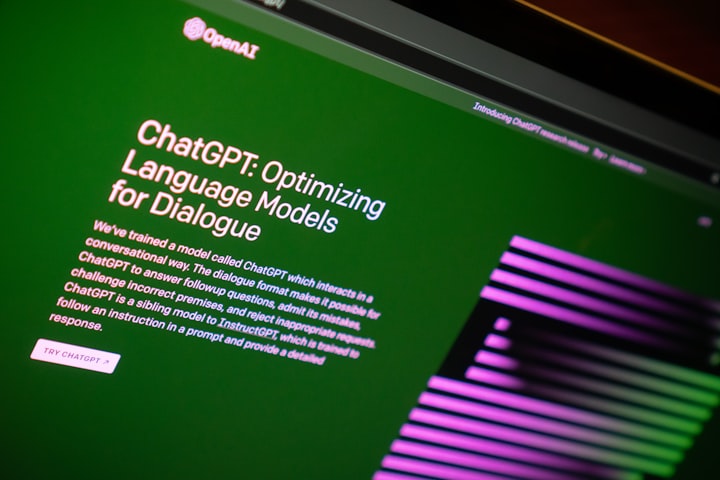ChatGPT Confession: What This AI Language Model Cannot Answer
Discovering the Uncharted Territory of Questions That Even ChatGPT Cannot Answer

ChatGPT is an incredibly powerful AI language model that has become increasingly popular for its ability to answer a wide range of questions. However, as impressive as ChatGPT is, there are still certain things that it cannot answer. In this article, we will explore what ChatGPT cannot answer and why.
ChatGPT is an AI language model that is trained on a vast corpus of text data. It uses natural language processing (NLP) and machine learning algorithms to understand the meaning of language and generate appropriate responses. However, despite its impressive capabilities, there are still certain types of questions that ChatGPT cannot answer.
1. Questions with limited context
One of the limitations of ChatGPT is that it requires context to provide accurate answers. If a question is too vague or lacks context, ChatGPT may struggle to provide a relevant response. For example, if a user asks "What is the meaning of life?" without providing any additional context, ChatGPT may not be able to provide an answer that is specific to the user's needs.
2. Questions that require personal experience
Another limitation of ChatGPT is that it cannot provide answers based on personal experience. If a user asks a question that requires personal experience or expertise, ChatGPT may not be able to provide an accurate answer. For example, if a user asks "What is it like to be a doctor?", ChatGPT may not be able to provide an answer that accurately reflects the experience of being a doctor.
3. Questions that require visual cues
ChatGPT is a language model that relies on text-based inputs. As a result, it cannot answer questions that require visual cues or imagery. For example, if a user asks "What does a blue whale look like?", ChatGPT may not be able to provide an accurate answer without additional context or visual aids.
4. Questions that require specific domain knowledge
While ChatGPT has been trained on a vast corpus of text data, it may not have specific domain knowledge that is required to answer certain types of questions. For example, if a user asks a question that requires knowledge of advanced mathematics or physics, ChatGPT may not be able to provide an accurate answer.
5. Questions that require subjective judgment
ChatGPT is an AI language model that relies on algorithms and data to generate responses. As a result, it may not be able to provide answers to questions that require subjective judgment or personal opinions. For example, if a user asks "What is the best book ever written?", ChatGPT may not be able to provide an answer that accurately reflects the user's personal preferences.
6. Questions that require current events or real-time data
Another limitation of ChatGPT is that it may not be able to provide answers to questions that require real-time data or information about current events. While ChatGPT is constantly learning and updating its knowledge, it may not have access to the latest information or data that is required to answer certain types of questions.
In conclusion, ChatGPT is a powerful AI language model that has become increasingly popular for its ability to answer a wide range of questions. However, there are still certain types of questions that it cannot answer. These include questions with limited context, questions that require personal experience, questions that require visual cues, questions that require specific domain knowledge, questions that require subjective judgment, and questions that require current events or real-time data. By understanding these limitations, users can make the most of ChatGPT's capabilities while also being aware of its potential limitations.
Extra bit:
Despite the limitations of ChatGPT, it is important to note that this AI language model is constantly evolving and improving. As research in the field of NLP and machine learning advances, we can expect ChatGPT and other language models to become more sophisticated and capable of answering a wider range of questions. Additionally, as the amount and diversity of data that is used to train these models increases, we can expect them to become more accurate and context-aware. However, it is important to recognize that even as these models improve, there may always be certain types of questions that require human expertise and understanding. As such, it is essential to continue to explore the boundaries of AI language models while also recognizing their limitations and the need for human input and knowledge.





Comments
There are no comments for this story
Be the first to respond and start the conversation.